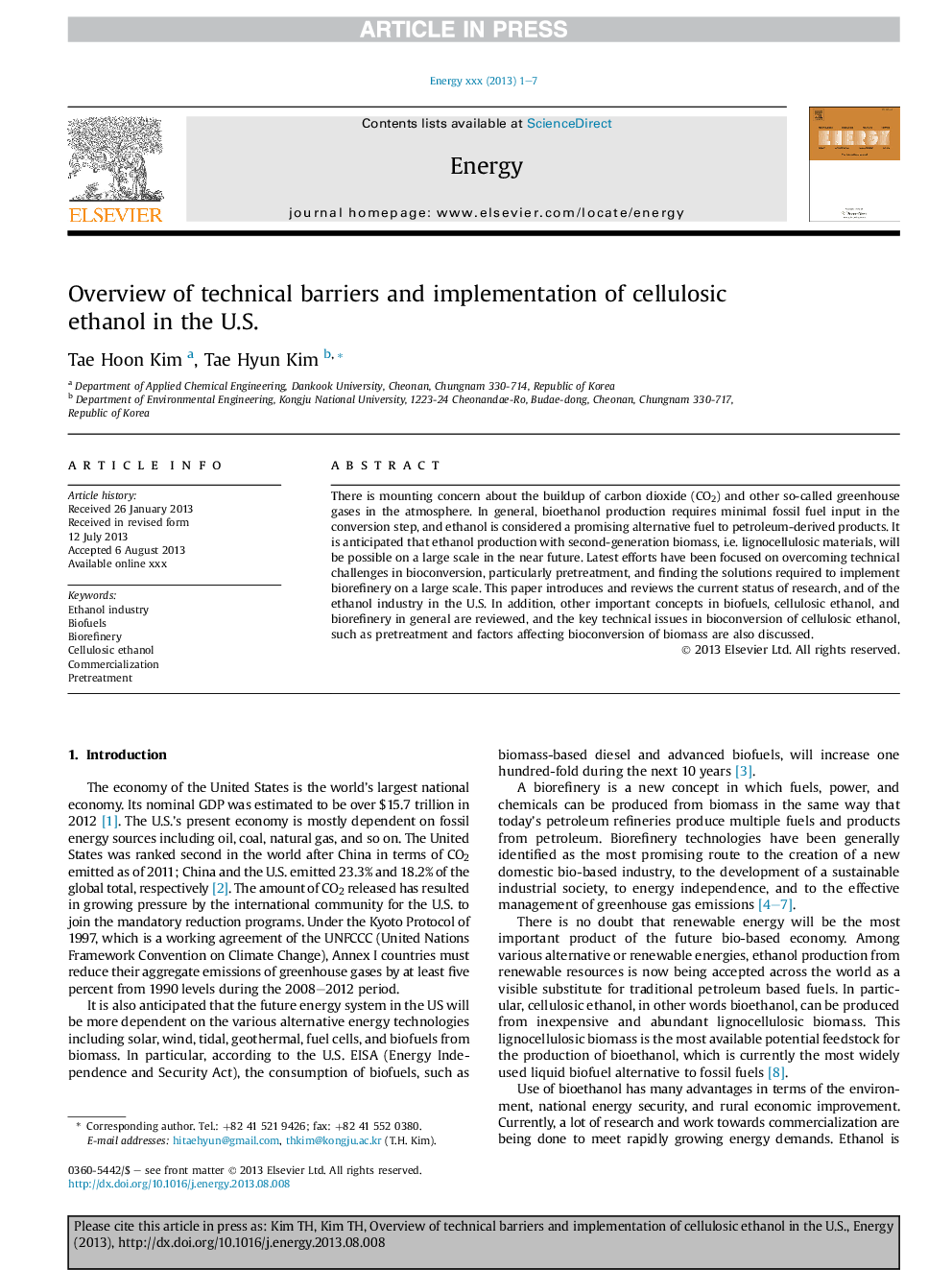| Article ID | Journal | Published Year | Pages | File Type |
|---|---|---|---|---|
| 8078283 | Energy | 2014 | 7 Pages |
Abstract
There is mounting concern about the buildup of carbon dioxide (CO2) and other so-called greenhouse gases in the atmosphere. In general, bioethanol production requires minimal fossil fuel input in the conversion step, and ethanol is considered a promising alternative fuel to petroleum-derived products. It is anticipated that ethanol production with second-generation biomass, i.e. lignocellulosic materials, will be possible on a large scale in the near future. Latest efforts have been focused on overcoming technical challenges in bioconversion, particularly pretreatment, and finding the solutions required to implement biorefinery on a large scale. This paper introduces and reviews the current status of research, and of the ethanol industry in the U.S. In addition, other important concepts in biofuels, cellulosic ethanol, and biorefinery in general are reviewed, and the key technical issues in bioconversion of cellulosic ethanol, such as pretreatment and factors affecting bioconversion of biomass are also discussed.
Related Topics
Physical Sciences and Engineering
Energy
Energy (General)
Authors
Tae Hoon Kim, Tae Hyun Kim,
